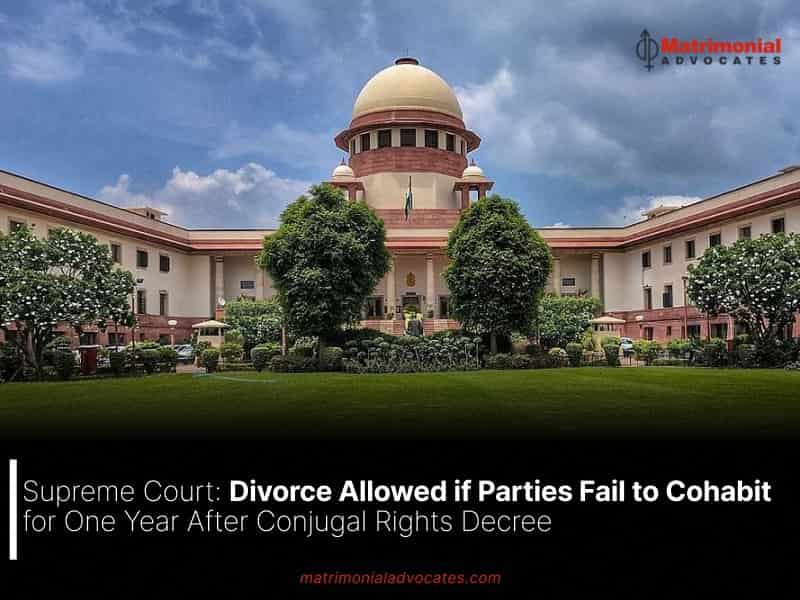
On July 8, 2024, the Supreme Court ruled that a divorce petition can be filed on the grounds of desertion if the spouses have not resumed conjugal rights for a period of one year or more after the issuance of such a decree. A bench consisting of Justices Abhay S. Oka and Ujjal Bhuyan upheld a petition filed by a man challenging a high court decision that had overturned a divorce decree granted on the grounds of desertion.
“This is a case of a complete breakdown of marriage for the last 16 years and more,” the court noted.
The court also found that the appellant’s abandonment, which commenced no later than 2008 and lasted until the submission of the divorce petition in 2013, was unjustified.
“Therefore, a decree for divorce on the ground of desertion under Section 13(1)(ib) ought to have been passed. Thus, in our view, the High Court ought to have confirmed the decree of divorce on the ground of desertion,” the bench said.
The parties were married on March 25, 1999, and have two adult children, as noted by the court. Their marital discord led to multiple legal proceedings starting from 2006. This prompted the appellant to file a petition under Section 9 of the Hindu Marriage Act, 1955, seeking restitution of conjugal rights.
On December 17, 2008, the man filed his petition for restitution of conjugal rights. On May 15, 2013, the Additional Civil Judge (Sr. Division), Barnala, issued a judgment and decree for restitution of conjugal rights, directing the respondent-wife to rejoin the appellant within three months. When the respondent-wife failed to comply, the appellant filed a petition under Section 13 of the Hindu Marriage Act on August 23, 2013, seeking divorce on grounds of cruelty and desertion in the Family Court at Barnala.
The wife appealed to the High Court of Punjab and Haryana, which dismissed her appeal on February 19, 2015, affirming the decree for restitution of conjugal rights. On August 1, 2016, the Family Court in Barnala granted the husband’s divorce petition, dissolving the marriage.
The wife contested this divorce decree, appealing to the Punjab and Haryana High Court, which set it aside on October 4, 2019. The high court concluded that desertion was not established, citing the appellant’s continuous neglect as a husband, which compelled the respondent to stay at her parental home.
However, the Supreme Court bench overturned this decision, stating, “In our view, the High Court’s judgment on the issue of desertion cannot be sustained.” The court also noted that the respondent-wife did not provide evidence of any attempt to resume cohabitation after February 19, 2015, when the High Court upheld the decree for restitution of conjugal rights.
“We must note that between August 1, 2016, when a decree of divorce was passed, and October 4, 2019, when the decree was set aside, no efforts were made by the respondent to resume cohabitation. She had not made out any such case. Moreover, there is no material on record to show that after the decree of restitution of conjugal rights was passed, the respondent showed even an inclination to resume cohabitation with the appellant,” the bench said.
Referring to Section 13(1A)(ii) of the Hindu Marriage Act, the bench observed that a divorce petition can be filed if there has been no compliance with the decree for restitution of conjugal rights for a period of one year or more.
The court also noted that the appellant has proposed to pay the respondent-wife a lump sum alimony of Rs 30 lakhs, which the bench deemed fair and acceptable. “Although we are granting a divorce decree based on desertion, it is important to clarify that this decree will take effect only upon the payment of Rs 30 lakhs to the respondent-wife,” the bench emphasized.





